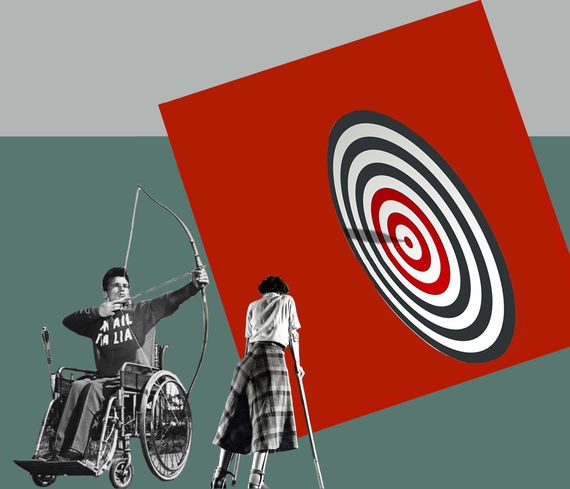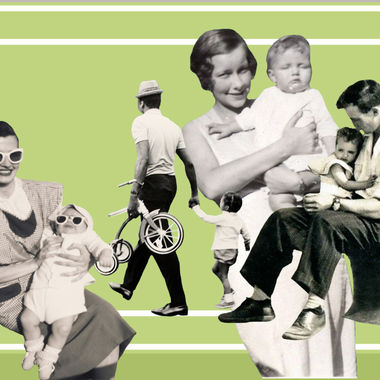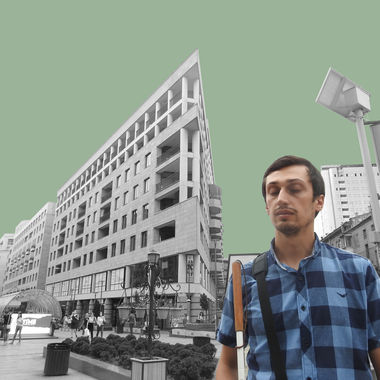Sex education, sexual health, sexual relations. In Armenia, these topics are spoken about in hushed tones or or not at all. Many would prefer that they not be discussed in schools, institutes of higher education or within the family. For the most part, sex is a taboo subject. And when it comes to the subject of sexual relations between individuals with disabilities, here the misconceptions and taboos are even greater. The majority of people believe that they - especially those who have mobility and mental disabilities - cannot and should not engage in sexual relations.
Having a healthy sex life is an essential and normal part of life. Everyone, no matter their professional, religious or cultural background has the right to fulfilled sex lives. Disabilities don’t prevent people from having sexual desires. American writer Tiffany Carlson, who at the age of 14 was left in a wheelchair after a car accident wrote, “If you do run into someone with a disability who’s asexual, ten-to-one it was the parents doing.”
Artak Davtyan uses a walker and remembers when he was young teenager, his mother explaining a woman’s menstrual cycle and how it was a normal thing. “We were standing near the Barekamutyun Metro Station and an old woman standing beside us was staring at as with a shocked face that seemed to want to scream in silence, ‘This is shameful! You shouldn’t talk about things like this!”” Artak says and adds that he is grateful to his mother for teaching him the right approach to sexuality.
He recalls another incident when his mother caught him watching adult videos. “I thought she would be furious and make me turn it off,” Artak says. “Instead she just said that if I wanted to get information about sex and have sex it would be better to do that in a more educated way to avoid harmful consequences.” She advised him to read and watch educational articles and videos on sex instead of going on those websites. “That’s what I did,” Artak explains.
Although he can get around with his walker, Artak sometimes uses a wheelchair. One time he was sitting at a park with his friend, when he mentioned that the girl sitting across from them was very pretty. His friend told him to go up to her and introduce himself. Seeing that Artak was hesitant, his friend sat on his wheelchair and approached the girl.
“He came back and said there was nothing to fear,” Artak says. “The wheelchair can never stop me from meeting a girl that I like. I don’t have that complex anymore. I once even met a girl who told me she found my walker sexy.” He goes on to say that he has never paid for sex because it’s not about feeling satisfied, but an opportunity for he and his partner to learn about each other’s bodies and a way for him to discover his partner’s desires. “I’m against paid sex, because I want to avoid sexually transmitted diseases. I always go to my yearly medical check-up so that I can avoid any additional problems. I’ve come to the realization that for me it’s more important to satisfy the woman first and then think about myself.”
In Search of Information
People with disabilities, like most people, get their information about sex online. Now there are groups on social media, where experts periodically discuss issues on sexual health and answer letters from group members. In order to educate women and girls with disabilities on sexual health, Arev Melkonyan from Bridge of Hope NGO and Mushegh Hovsepyan, director of Disability and Inclusive Development NGO, decided to create an opportunity for these women to get together once a week and discuss their issues and questions.
“Mushegh and I were talking one time and we realized that something needed to be done to help women and girls with disabilities become more active, something that would be helpful for them, like exchanging experiences and discussing ‘problematic’ issues with each other,” says Arev Melkonyan, who herself uses a wheelchair.
Melkonyan believes that women are more vulnerable and compared to men, are not well informed about their rights. She adds that during the courses they offer, girls have the opportunity to meet with different experts, including doctors, sexologists, psychologists and gynecologists. Arev, who is expecting her first child, says that she has faced discrimination during her pregnancy from her own doctor who doesn’t believe that women confined to a wheelchair can have an active sex life and get pregnant. The inaccessibility of state-run medical clinics is another challenge.
“Nobody talked to me about the importance of sex education. I came to the realization myself that is was very important,” Arev explains. She set out to do her own research and found information on reproductive health. “By the time I met my partner I had amassed enough information about sexual health, and even though I had some fears regarding my disability, it turned out that there was no need to be scared.”
One of the guest lecturers at the courses organized by Arev is sexologist Dr. Vahe Asryan. He says these meetings are helpful not only for experts, who discover shortcomings and problems in the field, but for the participants as well, who have the opportunity to get answers to basic questions and understand that examining their own body, the desire for sexual relations and having questions about sex is in no way shameful.
Dr. Asryan explains that even he was surprised to learn the depth of the problem: “The questions the girls had were mostly about anatomy and human physiology. However, what surprised me the most were the questions I thought they shouldn’t have. For example, can a person with disabilities have sexual desires, or get pleasure?”
Asryan stresses that people with disabilities are no different than anyone else when it comes to having sexual desires. He adds that some disabilities require certain accommodations during intercourse, “however, at the end of the day, we are all people and just as we need to eat and sleep, we all have sexual desires.”
Dr. Asryan consults many people with disabilities and is often contacted through social media; most of the questions he receives are about whether a particular type of disability can be a barrier to intercourse, or whether their partner can accept their body the way it is. While physical attraction is important, Asryan explains that sex is a deeper emotional phenomenon than simple physical pleasure.
by the same author
Surrogacy and Parenthood in Armenia
By Kushane Chobanyan
Couples who have struggled with infertility, sometimes turn to surrogate mothers to have a child of their own. With continuing economic hardship in Armenia, policymakers and health professionals need to address issues in the current legislation that may leave women who choose to become surrogates vulnerable.
From Gyumri With Love: An Inclusive Cafe With a Big Heart
By Kushane Chobanyan
Some said it would never work in Gyumri. Others took up the challenge. The Aregak Bakery and Cafe is shattering stereotypes by giving people with disabilities not only a job, but hope, dignity and a purpose while raising awareness.
In the Absence of Knowledge
Knowledge about sex, provided in a safe and loving environment and the freedom to explore one’s sexuality is not encouraged. This lack of compassion and information, especially for people with disabilities can have dire consequences.
According to statistics, in the U.S., people with disabilities are sexually assaulted at nearly three times the rate of people without disabilities.
A 2005 survey of people with disabilities indicated that 60 percent of respondents had been subjected to some form of unwanted sexual activity. Unfortunately, almost half never reported the assault. In general, people with disabilities experience domestic and sexual violence at higher rates than people who do not have a form of disability.
Consider the following:
- 83 percent of women with disabilities will be sexually assaulted in their lives.
- Just 3 percent of sexual abuses involving people with developmental disabilities are ever reported.
- 50 percent of girls who are deaf have been sexually abused compared to 25 percent of girls who are hearing; 54 percent of boys who are deaf have been sexually abused in comparison to 10 percent of boys who are hearing.
- Women with a disability are far more likely to have a history of undesired sex with an intimate partner – 19.7 percent vs. 8.2 percent.
- Approximately 80 percent of women and 30 percent of men with developmental disabilities have been sexually assaulted – half of these women have been assaulted more than 10 times.
In terms of sexual assault, people with mental disabilities are even more vulnerable - they are twice more likely to get abused. Arev Melkonyan states that people with mental disabilities are more vulnerable because often they don’t understand what is happening to them.
“No matter what kind of disability a person has, they have to be taught about sexual health and sexual intercourse during puberty,” she explains. “However, since there is the stereotype that a child with disabilities will not have a sex life in the future, they are not given proper education on sex. Even when they have mental disabilities they should be taught about the importance of sex. It just has to be taught in as clear and understandable words as possible.”
In Dr. Asryan’s opinion, the majority of Armenian society has stereotypes when it comes to people with disabilities having a sex life: “Society is like an organism composed of millions of cells. There are cells that destroy other cells. Society is like this as well - in the best case scenario, those who are different from us are rejected and in the worst case scenario are discouraged to even come out in public and interact with us. As a result, we create stereotypes and wrong perceptions about their abilities, including their sexual capabilities.”
People with visual disabilities also confront similar problems. Dr. Asryan said that a visually impaired patient told him his girlfriend refused to have sexual intercourse with him, arguing that if he can’t see her, how could they have sex? “However, not being able to see has nothing to do with having sex,” Asryan says. “This may seem absurd to many, but there are people among us who think this way.”
Rules of Attraction
Psychologist Nare Alaverdyan says a disability does not stop you from being attractive. Nare uses walking aids, but that hasn’t prevented her from feeling and looking attractive. She goes to the gym, wears bold lipstick and isn’t afraid to stand out. She explains that she hasn’t had sexual intercourse yet and half-jokingly says: “Well, they say you have to wait until you’re married to have sex, right? But seriously, I haven’t found the love of my life yet. I don’t have a stereotypical view on this, I just haven’t found the one that I would want to have sexual relations with.”
The young psychologist says she never feared that men would not be attracted to her because of her disability. “In my opinion, the man I’m going to be with will accept my body the way it is. Even if he has certain concerns, I hope he will have the strength to get over them,” she notes. “There’s no time to concern myself with my appearance.”
People who went to school in the 1980s and 1990s will remember how quickly teachers avoided the pages in textbooks about sexual organs. Their embarrassment caused students to be embarrassed as well. Many in that generation believed that trying to get information about sex or discovering their own body was immoral. In the best case scenario, the teacher would advise students to read those pages at home, as if it was it shameful to discuss them in front of everyone.
Nare admits that she didn’t learn about sex at school or at home. She too stresses that there are many stereotypes when it comes to sex in Armenia and women are often thought not to have sexual desires. Add to this a disability and then the problem gets even more complicated. “A lot of people believe that a woman who uses a wheelchair can’t have children. Many think she can’t have sexual relations and satisfy her partner’s needs,” Nare says, adding that women therefore are vulnerable on two accounts - their sex and their disability.
Stereotypes are not reserved only for women with disabilities. Writer Davit Poghosyan, who’s in a wheelchair due to a stroke he suffered as a child says that the woman he loved left him because of his disability. “In all honesty, Armenian perceptions and awareness are not ready to accept a person with disabilities with open arms,” he says, echoing similar issues with the lack of sex education in the country. “I read and researched on my own and understood that my disability won’t stop me from having sexual intercourse, because I, like others, have sexual desires.”
related from EVN Youth Report
Listening to Yerevan / Լսել Երևանը
By Aren Melikyan
Սիփանը չի տեսնում, նա Երևանը ճանաչում է ձայներով: Սիփանի հետ քայլել ենք Երևանի փողոցներով` լսելու քաղաքի ձայները, իջել ստորգետնյա քաղաք։ After years of letting his disability constrain him, Sipan has learned to adjust the city’s inconveniences to his condition. We walked with Sipan in the streets of the city, went to the metro to hear the sounds and feel Yerevan.
Disregarded Health: Sex Education
By Gayane Ghazaryan
The second part of “Disregarded Health” addresses the lack of comprehensive sex education in Armenia and the problems young people face as a result of shaming and insufficient information.
Dr. Asryan says that the media’s role is pivotal. He insists that stereotypes are further entrenched when articles are published without proper sources and people accept what is written as accurate information and start making assumptions. The issue does not only affect people with disabilities, but elderly people as well and their sexual health and sex lives.
People with disabilities are an inseparable part of our society. This is something we hear in the media, by government representatives and different experts. However, as diligently as we like to talk about the rights of people with disabilities, with the same diligence we ignore and violate their rights. In general, Armenian society has difficulty accepting people who are different, who have other opinions. We are used to everyone thinking the same way, having the same attitudes, having the same hair color, making the same mistakes. If a person is different, has free will or lives according to their own desires, then he/she becomes unacceptable. However, not understanding a person and by forming an opinion about their abilities and capabilities without knowing anything about them or their issues, simply shows a lack of empathy.








